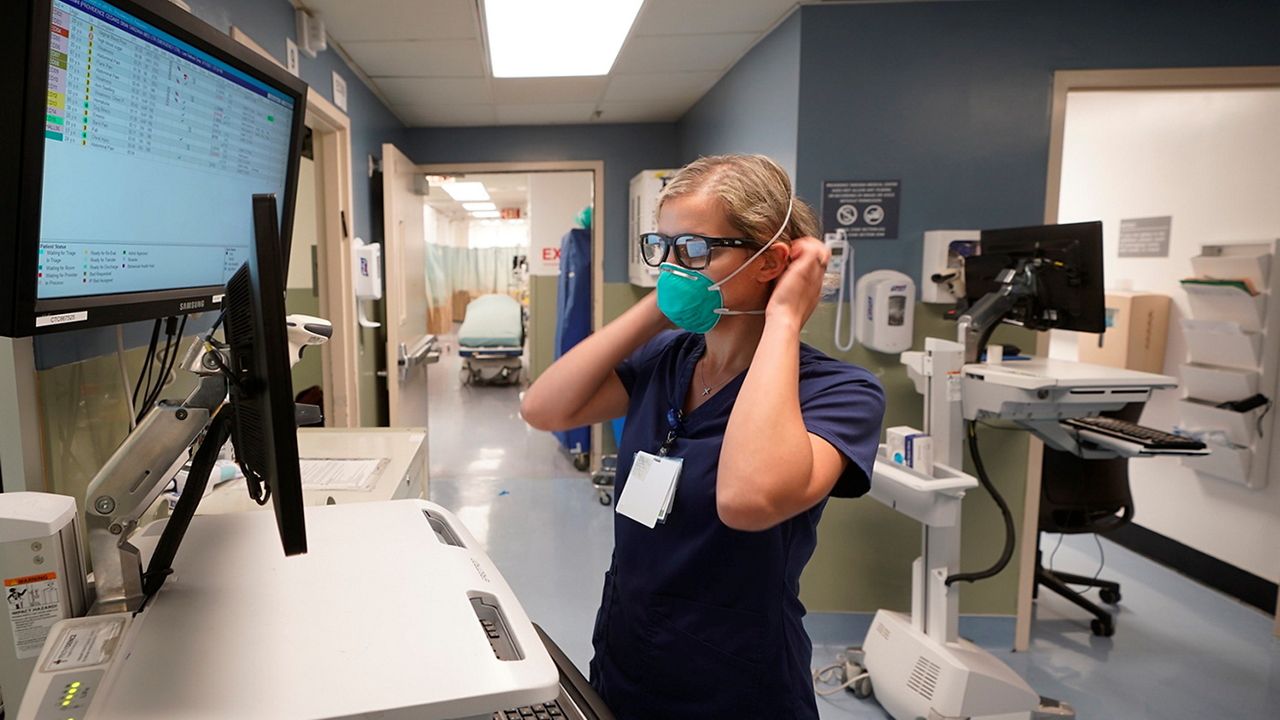LOS ANGELES (CNS) — With COVID-19 case numbers continuing to spike upward, Los Angeles County hospitals are likely to soon be strained with patients, the county health director said Thursday, noting that rising outbreaks at skilled nursing facilities have already prompted tighter infection-control measures.
What You Need To Know
- The tightening of rules comes as the county continues to see surges in cases
- On Thursday, another 6,245 COVID infections were reported in LA County, one of the largest single-day numbers in weeks
- The county's cumulative seven-day rate of new cases is now 280 per 100,000 residents, up from 246 a week ago
- As of Thursday, state figures showed there were 429 COVID-positive patients being treated in county hospitals, up from 410 on Wednesday
With 21 COVID outbreaks at skilled nursing facilities recently registered across the county, staff at such facilities are now required to wear N95-level masks at all times and undergo twice-weekly testing, while residents must undergo weekly testing. All communal dining has also been halted, county Public Health Director Barbara Ferrer said.
All non-essential indoor group activities are also being paused, she said.
The tightening of rules comes as the county continues to see surges in cases. On Thursday, another 6,245 COVID infections were reported in the county. Over the past seven days, the county has averaged more than 4,200 new infections per day, and the rate of people testing positive for the virus on a daily basis rose to 4.1%, up from 3.8% a day earlier.
The county's cumulative seven-day rate of new cases is now 280 per 100,000 residents, up from 246 a week ago. The rate keeps the county firmly entrenched in the U.S. Centers for Disease Control and Prevention's "medium" category of virus activity.
For now, the county's COVID-related hospital statistics are still low enough to prevent the county from moving to the CDC's "high" activity category. Being moved to "high" would mean a return of mandatory indoor mask wearing.
Under CDC guidelines, counties in the "medium" category will move to "high" if the rate of new virus-related hospital admissions reaches 10 per 100,000 residents, or if 10% of the county's staffed hospital beds are occupied by COVID-positive patients.
Ferrer said the county's current rate of virus-related hospital admissions is now 4.5 per 100,000 — double the rate from a month ago — and the rate of staffed beds occupied by COVID patients is currently 2.3%.
While those numbers are well below the "high" category level, Ferrer noted that "if we continue on the current trajectory, we could find cases and hospitalizations end up exerting stress on our hospital system in just a few weeks."
As of Thursday, state figures showed there were 429 COVID-positive patients being treated in county hospitals, up from 410 on Wednesday. The number of those patients being treated in intensive care was 55, up slightly from 52 a day earlier.
Although health officials have noted that many of the COVID-positive patients were admitted to hospitals for reasons other than the virus, Ferrer said they still require advanced levels of care that put stress on the medical centers.
"They require a lot of different resources that are of higher intensity, so that in and of itself is more strain on the system," she said.
She added: "Unless we interrupt this increase in transmission, it will have an impact on the health care system. The more cases you have ... the greater the strain will be on the health care system."
Ferrer also noted that more infectious strains of the virus are continuing to proliferate. In the most recent round of specialized testing to identify variants, 36.4% of cases tested were the result of a subvariant known as BA.2.12.1. That subvariant is considered exponentially more transmissible than its parent variant, BA.2, and far more transmissible than the omicron variant that sparked a winter surge in cases.
Yet another variant, BA.2.3, is also slowly emerging in the county, representing 7.6% of cases tested in the most recent sampling.
Ferrer said current vaccines are still proving to be effective against all variants — not necessarily preventing infections but generally leading to less severe illness among those who get infected.
Ferrer reported another nine COVID-related deaths on Thursday. She said the county now has a seven-day average of about seven fatalities per day. The new deaths gave the county an overall virus-related death toll of 32,109.
The 6,245 new infections lifted the county's cumulative total from throughout the pandemic to 2,955,954.



